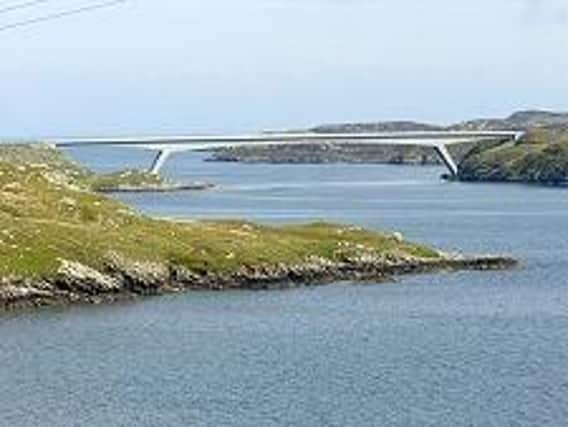‘Special status’ is in danger of being lost


This follows an announcement last week on the Shared Prosperity Fund which seemed to remove special treatment for the Highlands and Islands, due to pressures over funding formula exerted from elsewhere in Scotland.
Under proposals published last week, the Western Isles will receive an initial £1.857 million per annum, though the numbers in future will be much greater as EU funding phases out. While direct funding via the local authority and flexibility to determine local priorities have been welcomed, the funding formula does not reflect the exceptional needs of island communities.
Advertisement
Hide AdAdvertisement
Hide AdEarlier this month, in response to lobbying from Scotland’s urban authorities, all the council leaders in the Highlands and Islands wrote to the Levelling Up Minister, Neil O’Brien, urging him to maintain a separate approach for the region taking account of its distinctive factors.
The letter urged the UK Government to stick with an “approach for the allocation of funds in Scotland, which would see a split between Highlands and Islands and the Rest of Scotland. We believe that this approach provides continuity between structural funds and UK Shared Prosperity Fund”.
While this was the original intention of the UK government, council leaders feared that lobbying from COSLA officers “may have resulted in a change in your original support for (that) model. We would be deeply concerned if this is the case. To proceed on any other basis could have potentially disastrous consequences for one of the most fragile parts of the United Kingdom”.
The council leaders argued that the “needs-based” funding model did not include “key areas such as digital connectivity, transport connectivity and affordable/available housing … We believe these are critical to our overall wellbeing as they underpin the three UKSPF priorities of Communities and Place, Skills & People and Supporting Local Businesses”.
Advertisement
Hide AdAdvertisement
Hide AdThe letter continued: “You will also be aware that the Highlands & Islands region was recognised as a Transition region in terms of EU Funding and was projected to remain as such for the funding cycle 2020-27”. However, when the Shared Prosperity Fund allocations figures emerged last week it seemed that the counter-argument being has prevailed and the funding formula has to be contested.
Secretary of State for Scotland Alister Jack said: “This £212 million investment is part of a comprehensive package of UK Government support to level up Scottish communities, and comes on top of a record block grant for Scotland.
“The allocation formula for UK Shared Prosperity Fund takes into account both the local population data, and a broadly based measure of need, including factors like unemployment and income levels. This is to ensure the most amount of money is going to areas which will truly benefit from the fund”.